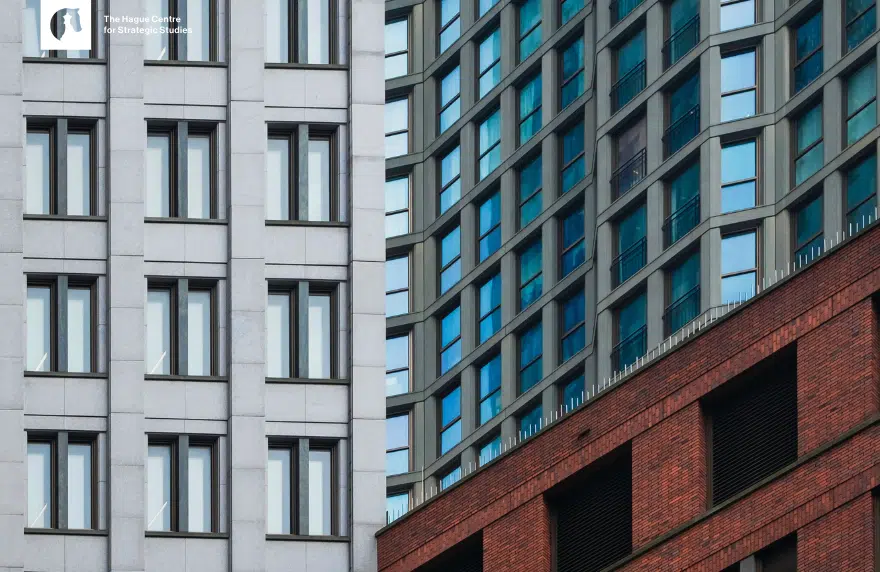‘Hier onveilig? Geen sprake van’. Een geruststellende uitspraak, maar helaas hebben de onafhankelijke onderzoeken ons geleerd dat vele organisaties uitermate slordig met de veiligheidsregels kunnen omgaan. Want, veiligheidsmaatregelen zijn duur en ook wordt vaak gesteld dat er nog nooit iets is gebeurd. Om deze valkuilen te voorkomen, zijn zowel het onafhankelijk toezicht, alsmede het onafhankelijk onderzoek de twee noodzakelijke waakhonden voor onze veiligheid. Echter over het woord onafhankelijkheid wordt zéér verschillend gedacht. Dat blijkt eens te meer uit het recente wetsvoorstel voor het onafhankelijk toezicht: de Kaderwet Rijksinspecties. In dit wetsvoorstel behoudt de betrokken minister een grote invloed op het functioneren van de Rijksinspecties. En dat noemt men onafhankelijk…
In het grijze verleden was het onderwerp veiligheid altijd een taak van de burgers zelf. Maar toen de staat aan kracht begon te winnen, verschoof het onderwerp veiligheid geleidelijk naar de overheid. Vanaf de industrialisatie werd het onderwerp veiligheid dan ook gezien als een kerntaak van de overheid alleen en was de overheid ook uitermate terughoudend om derden hierbij te betrekken.
Deze veiligheidsfilosofie wijzigde fundamenteel, zowel nationaal als internationaal, in de jaren tachtig en negentig van de vorige eeuw. Toen werd de veiligheid een ‘gedeelde’ verantwoordelijkheid. Hierbij bleef veiligheid wel een kerntaak van de overheid, maar burgers, ondernemingen en organisaties werden hiervoor uitdrukkelijk medeverantwoordelijk gesteld. Een ieder werd geacht inhoud te geven aan zijn of haar eigen verantwoordelijkheid voor veiligheid.
Deze fundamentele wijziging is begrijpelijk, omdat de overheid alleen natuurlijk nooit de veiligheid van haar burgers kan garanderen. Maar de overheid had als veiligheidsregisseur – want veiligheid was en bleef haar kerntaak – wel moeten controleren of bij de introductie van die gedeelde verantwoordelijkheid sprake was én bleef van een balans tussen de omvang van de verantwoordelijkheid van de overheid voor veiligheid en die van de burgers, ondernemingen en organisaties.
Deze regie heeft de overheid nooit eenduidig op zich genomen, omdat het onderwerp veiligheid daarvoor van oudsher binnen de overheid een te versnipperd en te verkokerd onderwerp is. Van meet af aan was er dan ook sprake van onduidelijkheid tussen die beide verantwoordelijkheden.
Als je de veiligheid meer aan de sectoren zelf gaat overlaten, dan krijg je eigen sectorale veiligheidsregels die zich aan het overheidstoezicht onttrekken, omdat het géén verbindende voorschriften zijn. Het overheidstoezicht verminderde hierdoor en vervolgens ging de overheid ook nog eens op het toezicht bezuinigen onder het motto: ‘wij laten de veiligheid toch aan de sectoren zelf over?’
In deze discussienota pleiten Professor mr. em. Pieter van Vollenhoven en Drs. Lodewijk Gunther Moor ervoor dat de Tweede Kamer het initiatief neemt om echt onafhankelijk toezicht door Rijksinspecties mogelijk te maken.
Professor mr. em. Pieter van Vollenhoven
Senior Advisor The Hague Centre for Strategic Studies
Drs. Lodewijk Gunther Moor
Oud-directeur Stichting Maatschappij, Veiligheid en Politie
Bron coverfoto: Unsplash







